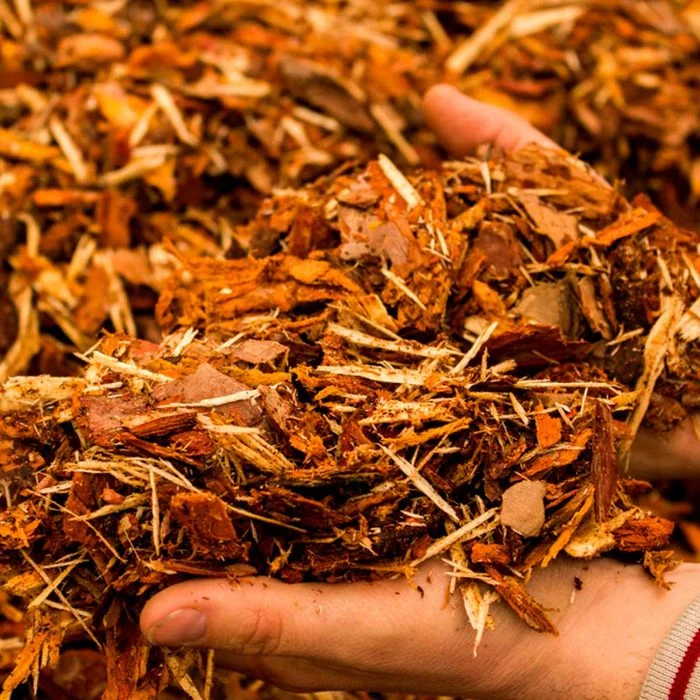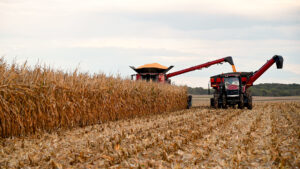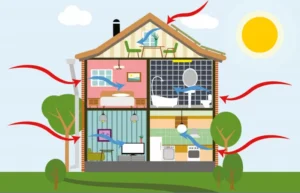Compost Calculator: The Ultimate Tool for Garden Planning Success
When planning your garden or landscaping project, knowing exactly how much compost you need can be the difference between a thriving garden and wasted resources. A compost calculator takes the guesswork out of estimating materials, helping you accurately determine the perfect amount of compost for your specific project. This article explores how these handy tools work and why they’re essential for gardeners of all experience levels.
Compost Calculator
Estimate the amount of compost needed for your garden or landscaping project.
| Area Type: | |
| Length (feet): | |
| Width (feet): | |
| Compost Depth (inches): | |
| Application Type: | |
| Compost Type: | |
Compost Requirement Results
For your 50 square foot area with 3 inches of compost:
| Compost Volume Required: | 0.46 cubic yards |
| Compost Weight (Approximate): | 700 pounds |
| Standard Bags (1 cubic foot): | 12.5 bags |
| Wheelbarrow Loads: | 5 loads |
| Estimated Cost: | $60 – $90 |
Why Accurate Compost Calculations Matter
Compost is often called “garden gold” for good reason. This nutrient-rich material improves soil structure, enhances water retention, and provides essential nutrients for plant growth. However, applying too little won’t give you the benefits you’re seeking, while too much can be wasteful and potentially harmful to certain plants.
Many gardeners make the mistake of eyeballing their compost needs, resulting in:
- Multiple trips to the garden center for additional materials
- Wasted money on excess compost that deteriorates before use
- Inconsistent soil quality throughout garden beds
- Suboptimal growing conditions for plants
A compost calculator eliminates these issues by providing precise measurements based on your specific garden dimensions and project needs.
How Compost Calculators Work
Compost calculators use simple mathematical formulas to determine volume requirements based on area and desired depth. The basic calculation involves three key factors:
- Area calculation: Determined by the shape of your garden bed
- For rectangular areas: Length × Width
- For circular areas: π × radius²
- For irregular areas: Total square footage
- Depth conversion: Converting your desired compost depth from inches to feet
- Volume formula: Area (sq ft) × Depth (inches) ÷ 12
- Unit conversion: Translating cubic feet to practical measurements
- Cubic yards: Volume (cubic feet) ÷ 27
- Standard bags: Typically 1-2 cubic feet per bag
- Wheelbarrow loads: Approximately 2-3 cubic feet per load
These calculations help you determine exactly how much compost to purchase, whether you’re buying in bulk or by the bag.
Different Applications Require Different Amounts
One of the most valuable aspects of a good compost calculator is its ability to recommend appropriate depths based on your specific project type:
Top Dressing (0.25-0.5 inches)
For established lawns and garden beds, a thin layer of compost provides nutrients without smothering existing plants. This application is perfect for seasonal feeding of perennial beds or rejuvenating lawns.
New Garden Beds (2-3 inches)
When establishing new planting areas, a deeper layer of compost helps build soil structure and provides a nutrient-rich environment for new plants to establish strong root systems.
Soil Amendment (4-6 inches to be tilled in)
When working with poor soil, mixing a substantial amount of compost into the existing soil dramatically improves its quality. The calculator helps determine how much is needed before tilling or turning the soil.
Mulching (1-2 inches)
As a protective layer, compost mulch helps retain soil moisture, suppress weeds, and slowly release nutrients. The calculator ensures you apply the right depth for these benefits without creating conditions that may promote disease.
Types of Compost and Weight Considerations
Different compost types have varying densities, which affects both weight and coverage. A comprehensive compost calculator accounts for these differences:
| Compost Type | Approximate Density | Best For |
|---|---|---|
| Finished Compost | 40 lbs/ft³ | All-purpose garden use |
| Mushroom Compost | 35 lbs/ft³ | Vegetable gardens, acid-loving plants |
| Composted Manure | 45 lbs/ft³ | Heavy feeders, vegetable gardens |
| Leaf Compost | 30 lbs/ft³ | Woodland gardens, mulching |
| Municipal Compost | 35 lbs/ft³ | General landscaping, soil rehabilitation |
These density variations affect not only how much the compost weighs (important if you’re transporting it yourself) but also its nutrient concentration and how it behaves in your soil.
Cost Estimation Features
Beyond simply calculating volume, advanced compost calculators also help with budget planning by providing cost estimates. These estimates typically account for:
- Different pricing between compost types
- Bulk versus bagged pricing structures
- Regional price variations
- Delivery costs for larger quantities
This feature helps gardeners decide whether purchasing in bulk or by the bag makes more economic sense for their project size.
Practical Examples of Compost Calculator Applications
Example 1: Vegetable Garden Bed
For a new 10′ × 5′ vegetable garden with a recommended compost depth of 3 inches:
- Area: 10 × 5 = 50 square feet
- Volume: 50 × 3 ÷ 12 = 12.5 cubic feet
- In cubic yards: 12.5 ÷ 27 = 0.46 cubic yards
- Standard bags needed: 12-13 bags (assuming 1 cubic foot bags)
- Approximate weight: 500-600 pounds (depending on compost type)
Example 2: Lawn Top Dressing
For a 1,000 square foot lawn requiring a 0.25-inch top dressing:
- Volume: 1,000 × 0.25 ÷ 12 = 20.8 cubic feet
- In cubic yards: 20.8 ÷ 27 = 0.77 cubic yards
- Approximate weight: 830 pounds (using finished compost)
Benefits of Using a Compost Calculator
Financial Savings
By calculating exactly what you need, you avoid purchasing excess material. For larger projects, the savings can be substantial—sometimes hundreds of dollars.
Environmental Benefits
Precise calculations reduce waste and ensure efficient use of resources. This is particularly important for compost, which requires significant resources to produce and transport.
Time Efficiency
Knowing exactly how much compost you need means fewer trips to the garden center and more time actually gardening. You can schedule deliveries confidently, knowing the quantity ordered will be sufficient.
Better Garden Results
The right amount of compost leads to optimal soil conditions, giving your plants the best chance to thrive. This improves yields for edible gardens and enhances beauty in ornamental plantings.
Tips for Using a Compost Calculator Effectively
- Measure accurately: Use a tape measure rather than estimating dimensions
- Consider multiple projects: Calculate needs for all garden areas before purchasing
- Account for settling: Fresh compost will compress over time, so consider ordering 10-15% extra for critical applications
- Check compost quality: Higher quality compost may allow you to use less
- Save your calculations: Keep records for future reference as compost needs are often seasonal
Conclusion
Whether you’re establishing a new garden, rejuvenating an existing one, or simply maintaining your landscape, taking a few moments to use a compost calculator can make a significant difference in your gardening success. It’s a simple step that yields substantial rewards in the form of healthier plants, better harvests, and more beautiful landscapes.
Compost Calculator Formula
Here’s the formula used by this Compost Calculator in bullet point format:
- Area Calculation:
- Rectangular Area = Length × Width
- Circular Area = π × (Diameter ÷ 2)²
- Custom Area = User Input Value
- Volume Calculation:
- Volume (cubic feet) = Area (square feet) × Depth (inches) ÷ 12
- Volume (cubic yards) = Volume (cubic feet) ÷ 27
- Weight Calculation:
- Weight (pounds) = Volume (cubic feet) × Compost Density
- Compost Density varies by type (pounds per cubic foot):
- Finished Compost: 40 lbs/ft³
- Mushroom Compost: 35 lbs/ft³
- Composted Manure: 45 lbs/ft³
- Leaf Compost: 30 lbs/ft³
- Municipal Compost: 35 lbs/ft³
- Practical Measurement Conversions:
- Number of Standard Bags = Volume (cubic feet) ÷ 1 (assuming 1 cubic foot per bag)
- Wheelbarrow Loads = Volume (cubic feet) ÷ 2.5 (assuming 2.5 cubic feet per wheelbarrow)
- Cost Estimation:
- Cost Range = Volume (cubic yards) × Cost Per Cubic Yard
- Cost ranges vary by compost type (per cubic yard):
- Finished Compost: $30-$45
- Mushroom Compost: $25-$40
- Composted Manure: $35-$50
- Leaf Compost: $20-$30
- Municipal Compost: $15-$25
This calculator helps gardeners and landscapers determine how much compost they need for their projects, provides practical measurements for purchasing and application, and gives a cost estimate for budgeting purposes.






